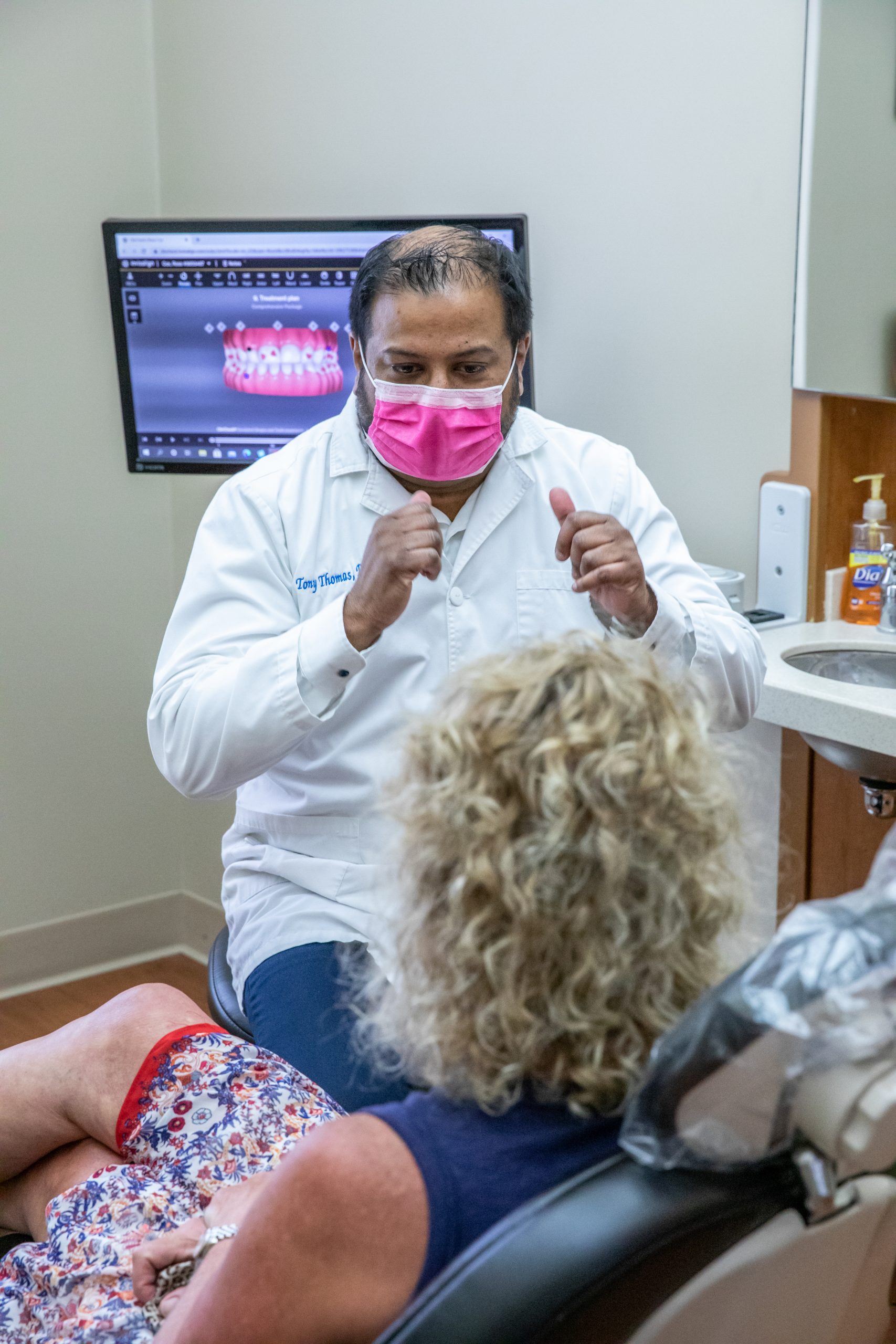Did you know that between 9% and 20% of Americans don’t see a dentist regularly because of anxiety and fear? We know dental anxiety is a real phobia. We know many of you don’t like the sound of a drill, or the smells in or office. It’s all very natural. That’s why we decided to share 5 tips to turn your next dental visit into a positive experience.
You are not alone if you have a real fear of going to the dentist.
The Signs of anxiety
There are 4 leading indicators you may have a phobia about going to a dentist. Number one, if you can’t sleep the night before your scheduled visit, that’s a telltale sign of dental anxiety. Number two, if you find youself crying or becoming physically ill at just the thought of going to a dentist, then you have dental anxiety. Number three, if you get nervous as your driving to your appointment and that feeling of fear intensifies while you’re sitting in the waiting room, then you have dental anxiety. Finally, if you get extremely uncomfortable sitting in a dentist chair or when objects are placed in your mouth at the dentist, then you have dental anxiety.
“There are some very calming and wonderful things you can do to ease or actually overcome the fear of your dental appointment. They’re relatively simple and can help set you up for great dental visits for years to come.” said Dr. Tony Thomas, lead dentist at Advanced Smile Care in North Central San Antonio.
Where the fear comes from
Fear of pain is often a big reason behind dental anxiety. Often fear can be alleviated just talking about your nerveousness with your dentist. Technology and science have taken big strides in dentistry, so that many dental procedures are much less painful or pain free all together!
Injections and needles can trigger anxiety, especially the thought of a needle being placed in your mouth.
Many people become anxious over this intrustion into their personal space and how close another person is to them. This is especially true when someone is putting their fingers and steel tools in the mouth.
Talking about the anxiety
The first thing to do is say something to your dentist. It’s a good idea, prior to your appointment, to tell the office about the fact thatyou have anxiety. Perhaps your nervousness comes from a prior, bad experience. Expressing your concerns to your dentist is a great place to start. Once your dentist knows exactly what fears you have, you can discuss them together. Often your dentist can walk you through exactly what will happen during your appointment. Once you know what to expect, some of your anxiety may just fade away.
Distractions for the mind
If the sounds that occur during your exam contribute to your anxiety, try distract yourself. Put on a pair of headphones and listen to your favorite music or even an audiobook to take your mind off what is happening in the dentist’s chair. Distractions are a great way to direct your mind to other places that can keep you calm and relaxed. Put a fidget spinner in your hand, or a small exercise ball. Try them. They work.
All in your mind
When you arrive at the dentist’s office and you are in the dentist chair, try some deep breathing. Count your breaths. Inhale and exhale slowly. Do this multiple times, both in the waiting area and again in the dental chair. Think about your entire body and focus on relaxing yourself one muscle group at time and work your way down your entire body. You’ll find when you concentrate on these simple steps, you should be able to relax.
Staying in control
If lack of control is a “hot button” for you, make sure you keep your dentist in the loop. Ask your dentist about every step that will happen during your appointment. A great idea is to have a hand signal ready for when you want your dentist to stop what they are doing, so thatyou can catch your breath.
Whatever your apprehension may be about going to a dentist, it’s never a good idea to skip regular checkups. Avoiding regular appointments can lead to problems such as infections, cavities, gum disease, and even tooth loss.
Sedation solutions
Many dental practices, including Advanced Smile Care, use a variety of methods of medical sedation to help their patients cope with anxiety. Be sure to discuss this option with your dentist and see if sedation is right for you.
“The professionals at Advanced Smile Care are committed to helping you overcome your anxiety, while helping to keep your smile bright and teeth healthy for years to come,” said Dr. Thomas.



